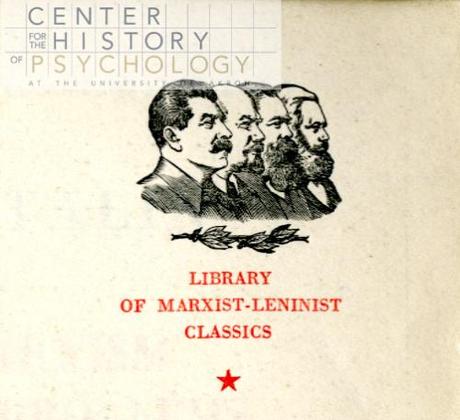-Contributed by Ekaterina Redkina.
My name is Katya Redkina and I am a Fulbright scholar from Moscow. I teach English and psychology at Moscow State Linguistic University which I graduated from 6 years ago. Now I am developing a Syllabus for the course in History of Psychology. The idea is to create a course in English for Russian students. I attend classes and seminars for teachers. I want to see how psychology is taught in the United States and adapt it for the Russian Educational system. Besides History of Psychology, my interests are linguistics, educational psychology, cognitive psychology, counseling, and psychotherapy. My PhD work concerns laws of visual perception of ambiguous figures. I am happy to be here at the Center for the History of Psychology and the University of Akron as part of my Fulbright scholarship.
When applying for the Fulbright scholarship almost 16 months ago, I could not have even imagined the kinds of thing that I would find at the Center. However I was lucky and got this almost once-in-a-lifetime chance not only to meet wonderful people, but also to plunge into a completely new world of archives, artifacts, manuscripts, books that smell (yes, age has a particular smell), finding aids, moving images and much more.
Trying to stop myself from opening every box and looking through every book I found, I had to focus on a certain subject matter; but what would it be? The answer came soon: what might be more obvious for a Russian psychologist at the Center for the History of Psychology than to search for material about Soviet or Russian psychology?
When I started looking through the collection, I was lucky again (not without the help of my friends). One of the first boxes I opened had something I was not expecting to see. A small, almost tiny book published in Moscow in 1954 called “Marxism and problems of linguistics”. Anyone being at least a little bit familiar with Soviet history will know that Marxism was something you do NOT expect to see on a book cover of the mid fifties. It is not even the connection between Marxism and linguistics that surprised me. What surprised me most was the author. The book was written by none other than J.Stalin.


The majority of the text was first published on June 20, 1950 in the Soviet newspaper Pravda. The same year, it was issued in the form of numerous pamphlets. The book is an interview, where Stalin answers the questions of his “younger comrades” (molodie tovarischi, in Russian):
A group of younger comrades have asked me to give my opinion in the press on problems relating to linguistics, particularly in reference to Marxism in linguistics. I am not a linguistic expert and, of course, cannot fully satisfy the request of the comrades. As to Marxism in linguistics, as in other social sciences, this is something directly in my field. I have therefore consented to answer a number of questions put by the comrades.
Looking at the list of papers written by Stalin at different times, you will see how broad his interests were, from ideological to very practical ones. This work on linguistics is also very much about ideology of Soviet society and the role language plays in it. Some of the questions discussed are:
- Should language be considered either a superstructure or the basis?
- Is language a class or non-class phenomena?
- The characteristic features of language, etc.

Stalin confidently answers all the questions through the prism of Marxism and also refers extensively to the Soviet linguist Nikolay Yakovlevitch Marr, the author of Japhetic theory.
What seems even more fascinating to me, is that if you feel particularly interested in this book, you can easily find it in famous book stores. The full text may also be found online. There is even a Facebook page of the same name. And of course, you can come read it and all of the other books in the library here at the Center for the History of Psychology!
